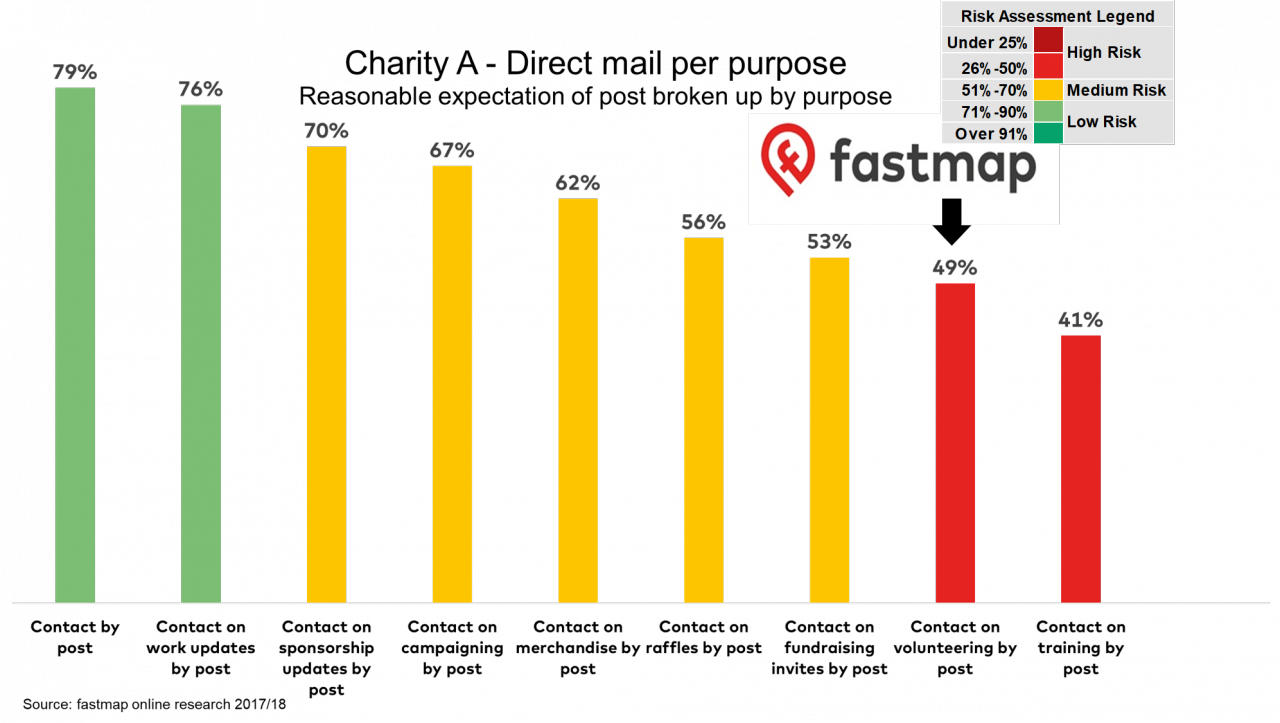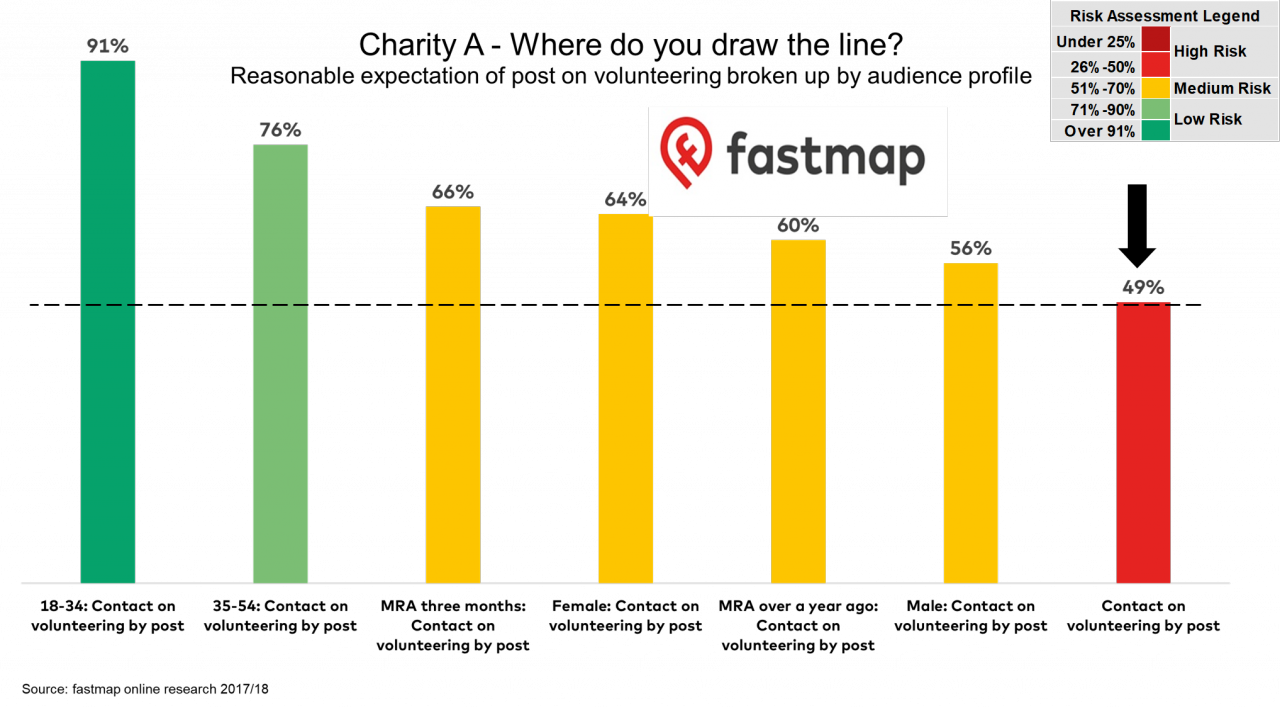Direct Mail Marketing and Legitimate Interest: Be reasonable!
19 Apr 2018

Too often organisations plan to take an oversimplified approach to direct mail marketing using Legitimate Interest to send post on all topics to everyone on the database. However, at the core of this legal principle is the reasonable expectation of a data subject. The challenge from a legal perspective is that every individual has a different relationship, experience and expectation of the brand. Taking account of this variety is a challenge.
fastmap have researched numerous databases recently and developed an approach that assesses risk based on what proportion of a group of similar profiles in an audience feel the activity is ‘reasonable’. The lower the proportion considering it reasonable, the higher the risk. And vice-versa. For the sake of our work we have assumed if less than half your supporters deem an activity reasonable, this is ‘high risk’. The greater the proportion considering something ‘reasonable’ the less risky the activity is likely to be.
This approach has allowed us to break some myths.
Let’s look at a real example. When supporters from Charity A are asked if they consider general postal communication reasonable, 79% said ‘yes’ which we have classified as low risk.
Digging a bit deeper however, the subject matter of direct mail marketing has a significant impact upon whether it is deemed reasonable. In this case less than half deem volunteering communication via post to be reasonable – i.e. ‘high risk’.

Not surprisingly, this reasonableness test varies dramatically by the profile of the individual and the relationship they have with the brand. Across the entire database, direct mail marketing about volunteering is 49% – i.e. ‘high risk’. However, if the postal volunteering message is targeted in a relevant way this same activity becomes medium or even low risk.
This contrasts with the perceptions of 35-34 age group (76% risk) with 18-34 year age group (91% risk) who are 15% less risky to contact about volunteering.

This example illustrates the danger in applying Legitimate Interest in too generic a way. But perhaps this complexity encourages organisations to act in the spirit of GDPR which is to pay more respect to how an individual’s data is used. It encourages different departments to ask the question, where do we draw the line? Targeting now becomes not only a commercial consideration but also an ethical and legal one. It’s an exciting time in direct mail marketing and the direct marketing industry as a whole, and for me this it is where compliance meets database marketing. If you want more insight on GDPR and Legitimate Interest, download our Legitimate Interest Industry Report.
We have recently released a new Legitimate Interest report that has forewords from the Institute of Fundraising and international law firm DWF. For more information about fastmap’s research into GDPR and data protection, Legitimate Interest, consent and more visit www.fastmap.co.uk or get in touch with David Cole, Managing Director, fastmap on +44 (0) 20 7242 0702 david.cole@fastmap.com.

Please login to comment.
Comments